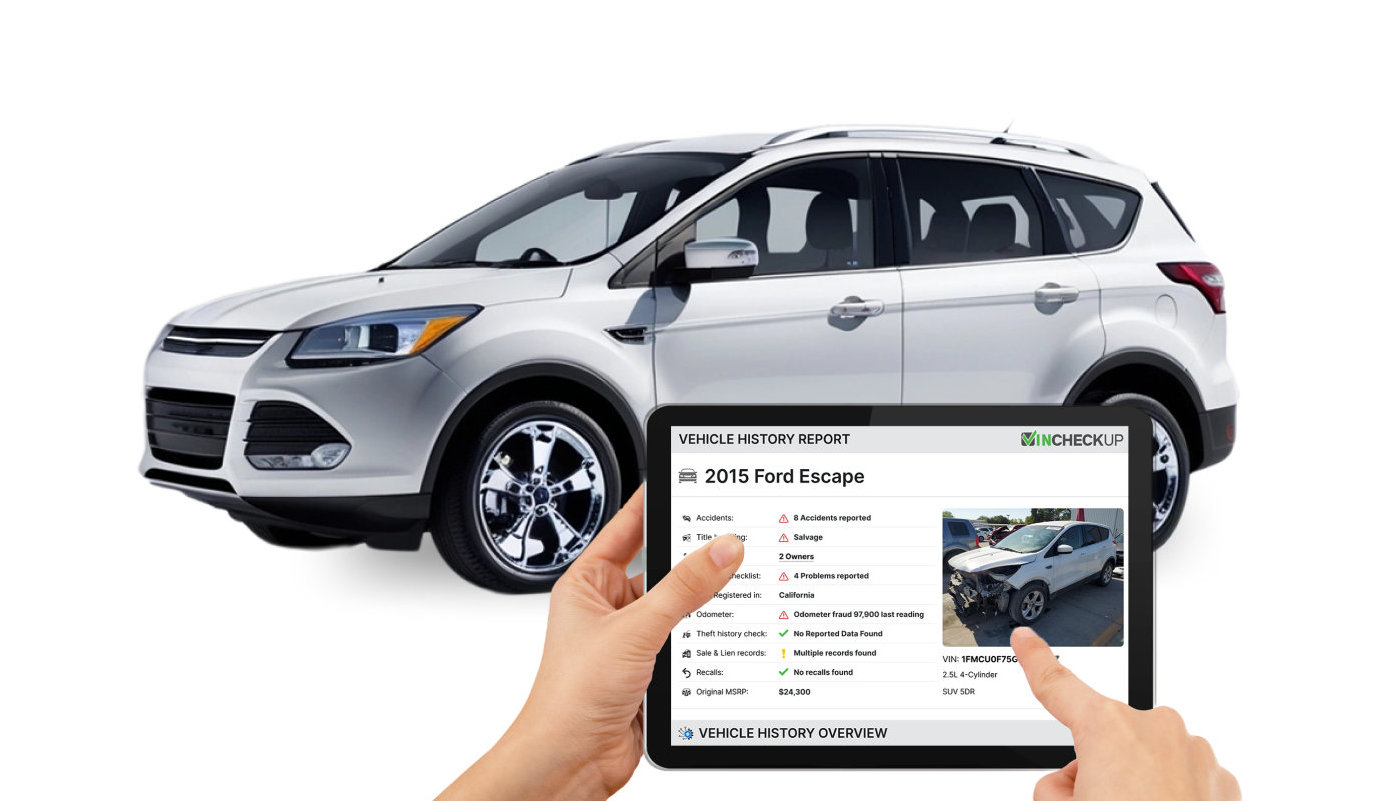Please check your VIN to make sure it's valid and try your search again.
VIN must be made up of exactly 17 characters and belongs to a vehicle manufacturer after 1980.
Reports available on Cars, Trucks, Vans, RVs and Motorcycles.



"Have to say I am surprised how much valuable information you guys were able to give me. Thanks a lot." - John K.
While Virginia features a thriving used car market, offering a wide range of options ranging from budget sedans to luxury SUVs, it is not without its faults. Beneath the shiny paint and polished sales pitches, the state’s used car market has its fair share of risks. Without proper due diligence, car buyers may easily overlook serious mechanical, electrical, structual and ownership issues that can end up costing thousands of dollars and even pose unaccounted safety and legal risks.
One of the most common types of used car market pitfalls in Virginia has to do with weather related events in the surrounding states. Virginia has an influx of flood and storm damaged vehicles’ coming from nearby states like North Carolina and South Dakota. After hurricanes and tropical storms hit the surrounding states, flood-damaged cars often end up being cleaned up and resold in Virginia without any disclosure of past storm damage. In 2023 alone, around 400,000 flood-damaged vehicles were on U.S. roads, with Virginia consistently ranking among the top 10 states where these cars resurfaced. In many cases the vehicles appear cosmetically perfect while hiding considerable electrical issues, corrosion and malfunctioning safety systems.
One of the main reasons why storm damaged cars are shipped into Virginia from surrounding states has to do with the dishonest practice known as title washing. Title washing occurs when unscrupulous sellers and scammers take advantage of certain loopholes within the DMV system to change a salvage or rebuilt title from other states to a clean Virginia title, effectively hiding the vehicle’s catastrophic past. The National Insurance Crime Bureau (NICB) estimates that tens of thousands of vehicles each year undergo title washing across the U.S. and Virginia’s proximity to other heavily trafficked car markets makes it a frequent destination. There is a reason why once a vehicle is declared to be a total loss, it effectively loses market desirability and drops in value as much as 40% even after it is repaired and put back on the road. Total loss damage sustained through a major accident or a catastrophic weather event can have long lasting effects on the vehicle’s value, safety and reliability.
Another well-known and persistent problem plaguing Verginia’s used car market is odometer fraud. While the practice of illegally decreasing the vehicle’s mileage displayed on the odometer to artificially inflate its perceived value has declined with modern digital odometers, it hasn’t stopped. The NHTSA estimates that more than 450,000 vehicles are sold each year in the U.S. with rolled-back odometers, costing consumers over $1 billion annually. Private sales and smaller, independent dealers—who are plentiful in Virginia, particularly outside of urban centers are often the source of these tampered odometer vehicles.
Beyond the obvious risk factors, despite having a state mandated annual safety inspection, Virginia’s used car market is full of vehicles with pre-existing mechanical problems, mainly due to neglect by the previous owner. While the annual safety inspection helps catch some safety issues, it doesn’t guarantee a car is free from hidden problems like failing transmissions, worn suspensions or engine trouble. Worse, some cars may pass inspection with quick, temporary fixes that won’t hold up long-term.
Compounding the problem is Virginia's mix of urban and rural markets also creates varying levels of buyer protection. In the larger cities such as Richmond, there is no shortage of reputable dealers offering certified pre-owned quality vehicles. However, in the more rural areas where private and small dealer transactions are more common, the inventory may be more limited and commonly sold under the “as-is” pretense. Buyers are often asked to sign an “AS-IS SALE” declaration as part of the sale process. This document releases the seller from any responsibility or warranty once the vehicle leaves their driveway, no matter what happens later.
While buying a preowned vehicle may be a smart financial decision, it comes with its own set of risks. From hidden flood damage and tampered titles to mechanical wear and odometer fraud, the dangers can easily turn what seems like a great deal into a costly mistake. In a state where the used car market is as active and diverse as the geography itself, being unaware of these risks can leave drivers stranded with more problems than they bargained for.
At the end of the day, buying a used car in Virginia comes with more risks than many buyers realize. However, with some due diligence and a proper pre-purchase inspection it is possible to considerably reduce those risks allowing you to make an informed used car buying choice.
Growing Population
with over 8 million people currently living in VA
7 million+
registered vehicle in VA
1 in 5 cars for sale in VA
has had a previous accident
1 million+
vehicles sold in VA annually
Conducting a simple VIN check before purchasing a vehicle is a crucial move that may help you avoid potential problems and future expenses. Taking this step may give you the opportunity to:
In today's market, transparency is everything. By checking the VIN, you equip yourself with the knowledge to make an informed choice, safeguarding your investment and ensuring you drive away with confidence.